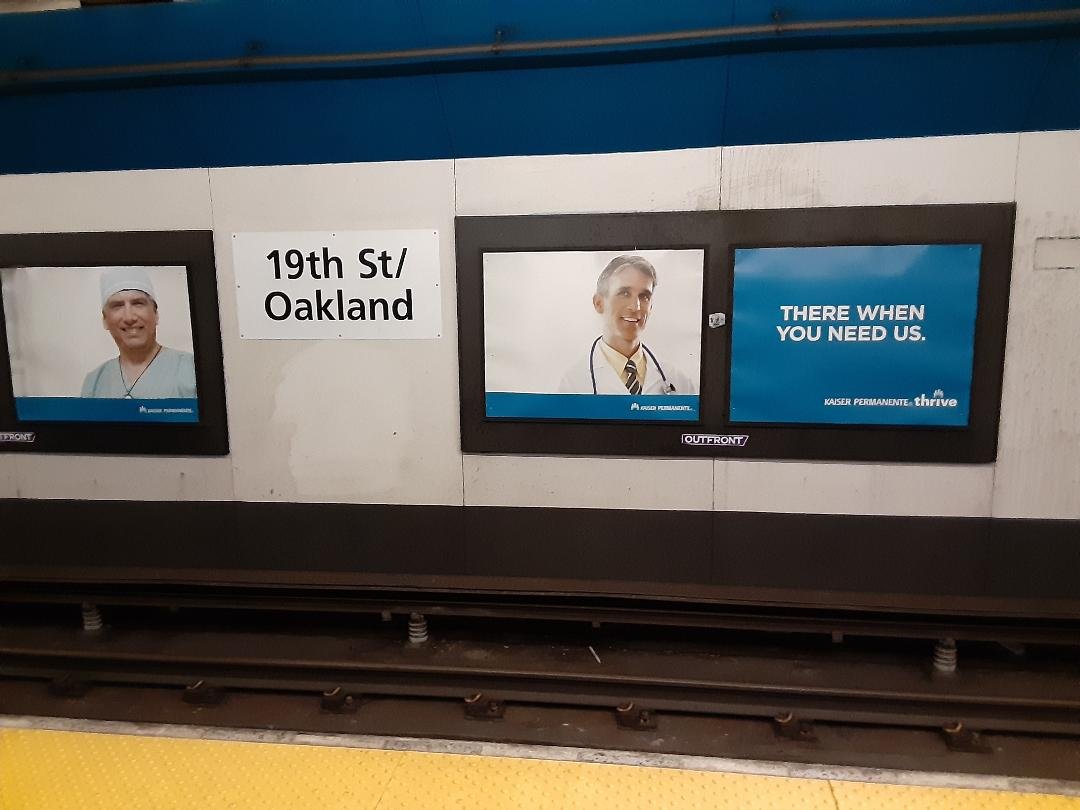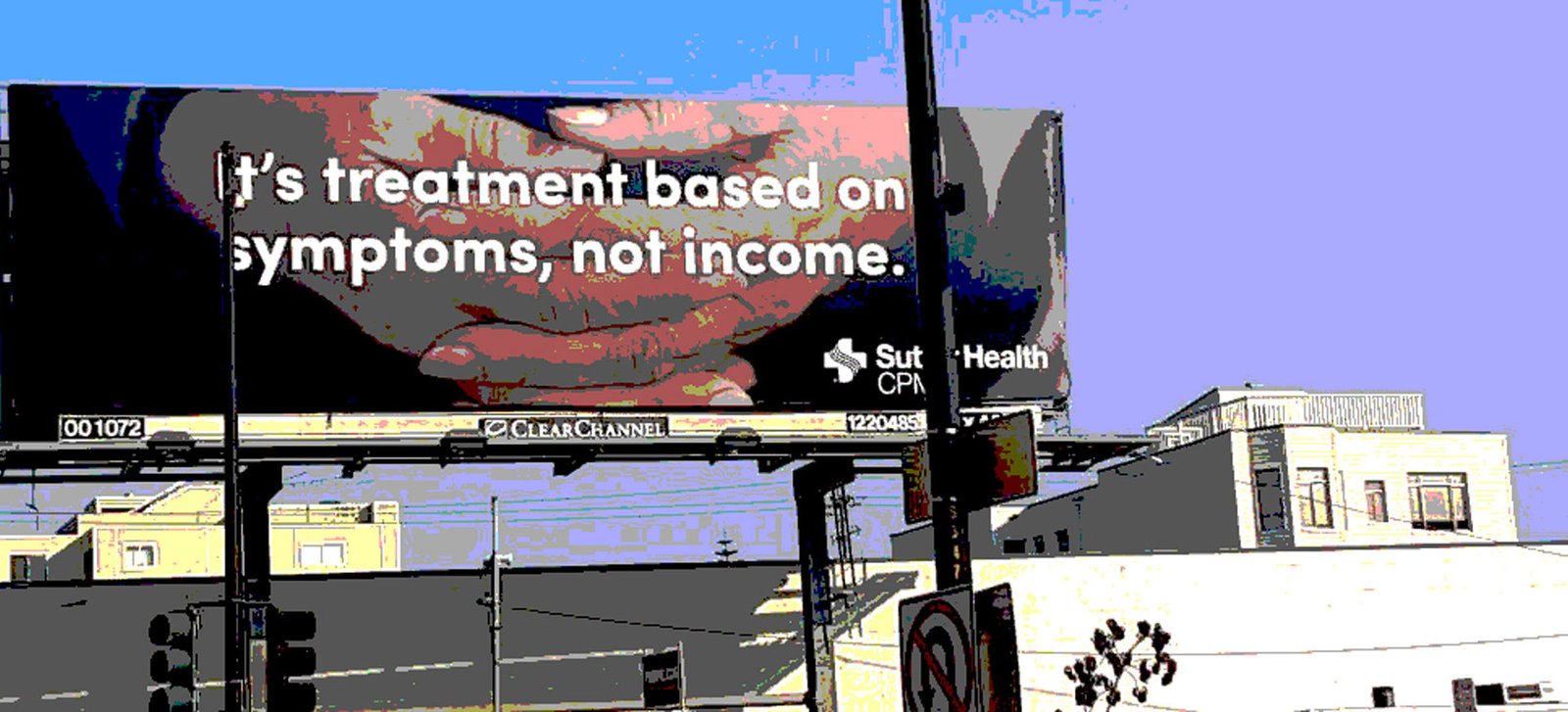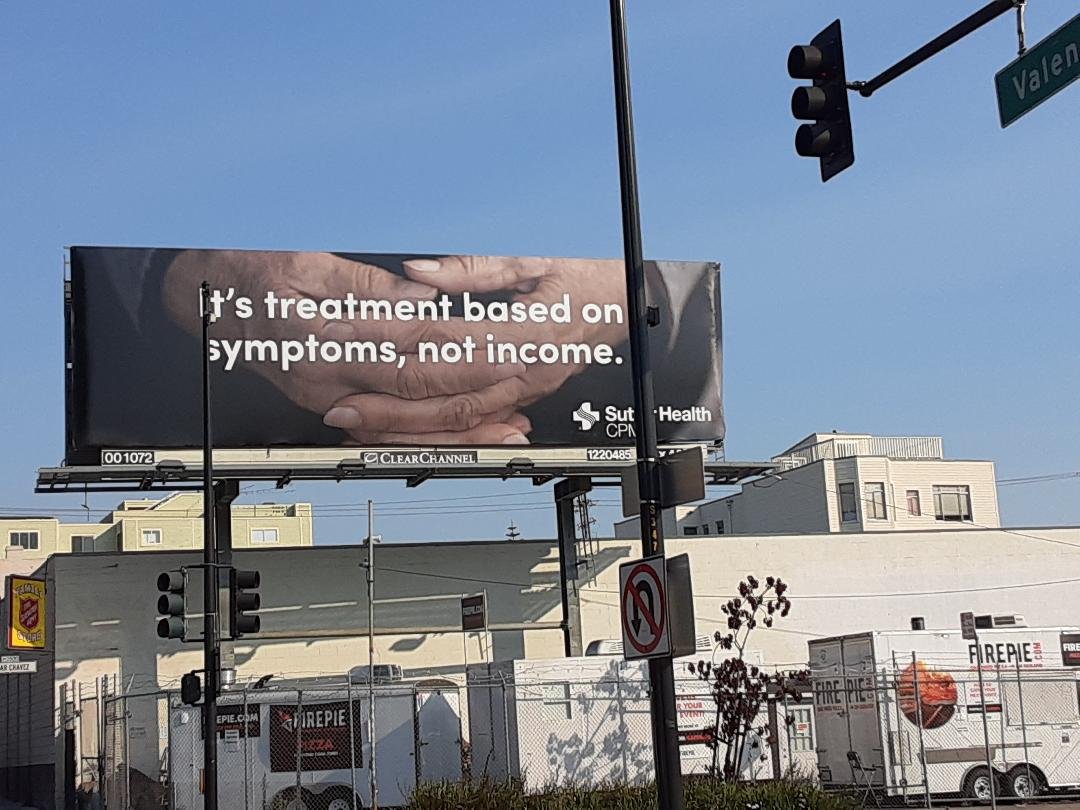It’s Treatment Based on Symptoms, Not Income
Billboard in San Francisco – Sutter Health
That healthcare can be a lucrative line of work has been a feature of the healthcare system in the United States for over 150 years. The American Medical Association (AMA) has been doing all it can to elevate doctors and dismiss community traditions like midwives and alternative medicine. Of course when there is money involved all sorts of shady people come out of the woodwork, trying to make a buck. Think of the wallpaper that you sometime see on folksy restaurant bathroom walls of reproductions of late 18th century newspapers. Ads for tonics and elixirs, perhaps often disguised liquor, that cure everything from heart conditions, digestion issues and even your sex life.
This sort of commercialization of healthcare, even when they are “not for profit” institutions is so ubiquitous that people rarely think twice. So when I saw the Sutter Health slogan “It’s Treatment Based on Symptoms, Not Income” I was struck with the thought of whether this was created by the Sutter Health marketing department, the Sutter Health finance department or the Sutter Health doctors. It all sounds so altruistic and noble but give me a break; the CEO of Sutter Health a few years back made over 7 million dollars a year; the CEO of Kaiser Permanente made 16 million a year. Even though these institutions go under the moniker of “non-profit” in the end it is really about money and just like the petrol-chemical and banking industries, the main message of most marketing is often not about the actual product but about the political spin and supposed benevolence of the organization. I would wager that there are people today dealing with the Sutter Health billing department.
A larger question would be what does “treating the symptoms” actually mean? If you were a roofer, treating the symptoms would mean that your leaking roof would never actually get fixed. Instead of treating the cause, that perhaps your roof is twenty years old and needs to be replaced, roofing companies would simply charge you for expensive plastics buckets indefinitely to capture the symptom – the water dripping through the ceiling. If you were a glass shop, you would indeed treat the symptom, the broken window but never get to the cause – perhaps the golf driving range next door.
If our healthcare is now simply about “treating symptoms,” our healthcare system will over time become more expensive and never become single-payer. There are simply trillions of dollars, whole economies, insurance companies, medical technology companies, a cultural ethos and entire small cities built around our current healthcare system. That the pharmaceutical industry is also built around treating symptoms simply closes the loop.
A better slogan, but one where there is a lot less money to be made would be,
“Identify the cause, the symptoms may go away.”
But that would would take some actual work and people always want a quick fix – give me a pill, make it go away.

While taking the BART back from a show in Oakland, I was struck by the fact that every single billboard in the 19th Street Station was bought out by Kaiser Permanente. All fifty or so billboards had doctors looking directly at you. With the slogans “There When You Need Us”, “Care at the Center”. This must have cost a lot of money. Every billboard was rented which meant perhaps fifty units in one of the most expensive markets in the United States. Meanwhile, every few minutes a somewhat desperate looking person would approach you panhandling and looking for a few bucks. The irony was a bit hard to take.
Modern medicine, especially the technological advances when it comes to intricate surgeries, are amazing. If you get in a car accident, the tools available to doctors today are much more powerful than just ten years ago, but that is just part of the story of our current state of Western medicine.
The “Medical Industrial Complex” is upon us. Dwight Eisenhower who’s final speech as president gave us the term, “Military Industrial Complex” is probably just shaking his head. It is probably dangerous for healthcare slogans to be made by marketing departments and in the end not good medicine.



